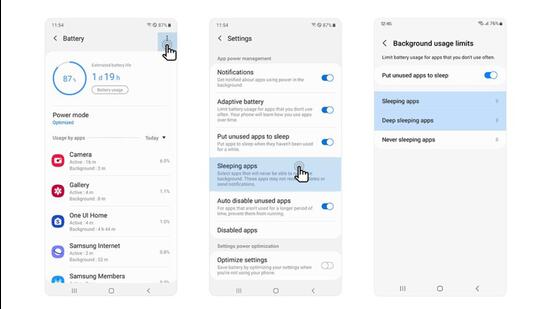While some may have become habitual, most users would have realised that Android phones have a definite problem of inconsistent management of foreground and background apps as well as services. Behaviour on the same device may differ between apps. A Samsung phone may behave in a completely different way from a OnePlus phone while handling the same apps and usability scenarios.
Simply put: Android phones have the problem of inconsistently shutting down background apps and tasks, which often means, a music streaming app you may be using at the time suddenly shuts down. Worse, the morning alarm doesn’t wake you up as it should.
Google is intent on fixing this problem with Android 14, the next iteration of Android expected later this summer.
It’ll be a three-pronged approach. First, there will be a new requirement for declaring foreground service types, and request type-specific permissions, which give the operating system more clarity on when it’s reasonable to allow apps to remain active.
This means app developers will need to specify at least one foreground service type, which represents the app’s use case.
“One such challenge we have heard from the community involves restrictions on foreground services and background work that make it harder for you to create apps that work across different device models,” Google said in a statement.
Secondly, the new user-initiated data transfer job type will make apps and tasks in the background more stable. An app must opt-in if it wants to grant its own background activity launch privileges. There will also be an updated Google Play policies that’ll monitor necessary use of foreground services and user-initiated tasks, while ensuring data security isn’t compromised by potentially malicious apps.
The aggressive limitations on background apps and services have become commonplace across Android phones, an ecosystem which inevitably replicates and mimics functionality across the board in the name of battery optimisations and system resource management.
While there are many apps which need to be kept in check, the heavy-handed approach has meant even important apps, including calendar notifications, alarms, good old music streaming apps or instant messengers, have become inconsistent to use on many phones.
With Android 14, an app will only be able to stop its own background processes.
“Android is designed to keep cached apps in the background and kill them automatically when the system needs memory. If your app kills other apps unnecessarily, it can reduce system performance and increase battery consumption by requiring full restarts of those apps later, which takes significantly more resources than resuming an existing cached app,” Google has informed developers.
Also Read:Google rolls out Android 14 beta. A look at its latest features
Samsung is the first phone maker to have confirmed complete support for Google’s new direction for Android and will include the functionality in One UI 6.0 software which rolls out for the company’s Galaxy smartphone range later this year.
“Since One UI 6.0, foreground services of apps targeting Android 14 will be guaranteed to work as intended so long as they are developed according to Android’s new foreground service API policy,” the company said in a statement.
Good thing too, because if you have used a Samsung Galaxy smartphone for apps that may require to run in the background, you’d have noticed missed notifications, inconsistent data refresh while in the background and apps generally being unstable after forcefully stopped amid a task.
This behaviour had become worse on Samsung’s Android phones since Android 11.
There is an online tracker, perhaps aptly named ‘Don’t kill my app!’, which has tracked Android smartphone behaviour with regard to how Android phones manage battery optimisation. It ranks Samsung’s Galaxy smartphones as the worst offenders in that regard.
“After 3 days, any unused app will not be able to start from background (e.g., alarms will not work anymore). Imagine, you won’t use your alarm clock for the weekend plus 1 day, no alarms anymore and you miss work,” notes the tracker. That is just one example.
In the Indian context, the next most aggressive curtailing of background apps is done by OnePlus’ Oxygen OS and MIUI on Xiaomi’s phones.
“Xiaomi and their Android customisation called MIUI belongs in the most troubled group on the market with respect to non-standard background process limitations and non-standard permissions. There are no APIs and no documentation for those extensions. In default settings, background processing simply does not work right and apps using them will break,” the tracker notes, for Xiaomi phones.
With Samsung making its intention clear, it may not be long before other Android phone makers announce similar moves with software and layers designed for Android 14.
But when your Android phone behaves better with background tasks such as keeping a messaging app or a music streaming app active, it will depend on the eventual roadmap for Android 14 rollout for each phone. That in itself is a fairly complex topic of discussion within the Android smartphone space.

